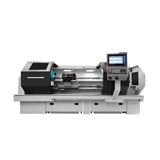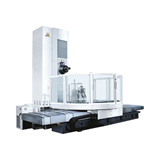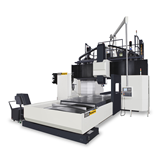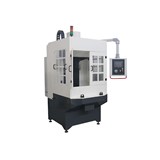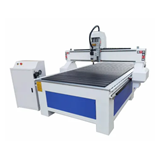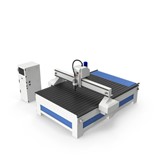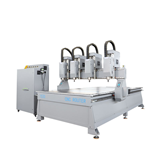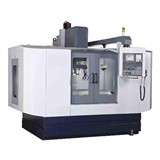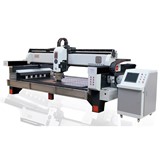Explore CNC machining centre prices, types, and buying tips in Australia. Get expert advice on choosing the right machine for your business needs.
Key Takeaways
- CNC Machining Centre Prices: Entry-level machines start from $30,000, mid-range models range between $80,000 - $150,000, and high-end industrial machines can exceed $500,000.
- Types of CNC Machining Centres: Vertical, Horizontal, and 5-Axis Centres, each suited for different applications and industries.
- Compliance & Certification: Australian buyers must adhere to ISO 9001 (quality), AS/NZS 4024.1 (safety standards), and CE Marking (for European-imported machines).
- Financing Options: Leasing, equipment financing loans, and government grants such as Instant Asset Write-Off can help manage costs.
- Maintenance & Operational Costs: Expect annual maintenance costs of 2-5% of the machine's value, plus costs for parts, servicing, and software updates.
- Key Buyer Considerations: Accuracy, spindle speed, tooling compatibility, automation features, software integration, power consumption, and after-sales support.
CNC machining centres are a crucial investment for Australian manufacturers, providing precision, automation, and efficiency across industries such as aerospace, automotive, medical, and general metal fabrication. However, selecting the right machine requires careful consideration of types, prices, operational costs, maintenance, financing options, and compliance requirements. This guide will help you make an informed purchasing decision by covering everything you need to know about CNC machining centres in Australia.
Types of CNC Machining Centres
Choosing the right type of CNC machining centre depends on your production needs, material types, and complexity of machining operations.
1. Vertical Machining Centres (VMCs)
- Most common type, with a vertically oriented spindle.
- Best for flat workpieces and operations like milling, drilling, and cutting.
- Suitable for industries such as metal fabrication, automotive, and aerospace.
- Relatively compact footprint, making them ideal for workshops with limited space.
- Price Range: $30,000 - $200,000, depending on size, spindle speed, and automation capabilities.
2. Horizontal Machining Centres (HMCs)
- Spindle is positioned horizontally, allowing for multi-sided machining in one setup.
- Faster and more efficient for batch production due to improved chip evacuation.
- Used in industries such as aerospace, mining, and heavy equipment manufacturing.
- Capable of handling larger and heavier workpieces compared to VMCs.
- Price Range: $80,000 - $300,000, depending on machine size and automation features.
3. 5-Axis Machining Centres
- Advanced CNC machines offering precision machining from multiple angles.
- Essential for aerospace, medical, and complex automotive components.
- Reduces the need for multiple setups, increasing efficiency and accuracy.
- Requires skilled operators and advanced CAD/CAM software integration.
Price Range: $150,000 - $500,000+, depending on size, spindle power, and software capabilities.
CNC Machining Centre Prices in Australia
CNC machining centre prices in Australia vary significantly based on type, size, features, and brand.
- Vertical Machining Centres: Prices start from $30,000 for basic models, while high-end versions can reach $200,000.
- Horizontal Machining Centres: These machines range between $80,000 and $300,000.
- 5-Axis Machining Centres: Advanced models start from $150,000 and can exceed $500,000+
Additional Cost Considerations:
- Tooling & Accessories: High-precision tooling, cutting inserts, and tool holders can add $5,000 - $50,000 to initial costs.
- Software & Programming: Advanced CAD/CAM software licences range from $3,000 - $20,000, depending on features and integrations.
- Installation & Training: Professional setup and training can cost $5,000 - $15,000, essential for maximising efficiency and minimising errors.
- Automation Upgrades: Adding robotic tool changers or conveyor systems can increase efficiency but add $20,000 - $100,000 to overall costs.
Operational & Maintenance Considerations
- Power Consumption: CNC machining centres typically require 15-50 kW, affecting electricity costs.
- Cooling & Lubrication: Regular coolant changes and lubrication are necessary to maintain machine efficiency and prevent overheating.
- Spindle Replacement: A CNC spindle can cost $5,000 - $30,000, with a lifespan of 5-7 years depending on usage.
- Annual Maintenance Costs: 2-5% of machine value should be allocated for servicing, including part replacements, lubrication, and calibration.
- Preventive Maintenance: Regular inspections and software updates can prevent costly breakdowns.
Financing & Leasing Options
Investing in a CNC machining centre requires significant capital, but several financing options are available in Australia:
- Equipment Loans: Business loans with interest rates between 5-8% p.a., allowing for gradual repayment.
- Leasing: Provides flexibility with lower upfront costs, tax-deductible payments, and the option to upgrade after the lease period.
- Government Grants & Tax Incentives: Programs such as the Instant Asset Write-Off allow businesses to claim full depreciation on eligible purchases.
- Supplier Financing: Some CNC manufacturers and distributors offer in-house financing or deferred payment plans.
Compliance & Certification Requirements in Australia
CNC machining centres must comply with Australian and international standards to ensure quality, safety, and regulatory adherence:
- ISO 9001: Internationally recognised standard for quality management systems, ensuring consistent production standards.
- AS/NZS 4024.1: Australian safety standards for industrial machinery, covering risk management and operator safety.
- CE Marking: Required for European-imported machines to ensure compliance with health, safety, and environmental protection regulations.
- WorkSafe Regulations: State-specific safety requirements for operating CNC machinery in workshops and factories.
CNC Machine Operator Skills & Training
Operating a CNC machining centre requires technical expertise, precision, and ongoing training. Skilled operators improve efficiency, reduce errors, and extend machine lifespan.
Key Skills for CNC Operators
- CNC Programming – Proficiency in G-code, M-code, and CAD/CAM software.
- Measurement & Machining Knowledge – Understanding tolerances, materials, cutting tools, and spindle speeds.
- Problem-Solving – Diagnosing machine errors and tool wear.
- Safety & Compliance – Adhering to AS/NZS 4024.1 safety standards and PPE requirements.
Training Options in Australia
- TAFE & Vocational Courses – Certificate III & Diploma programs in CNC machining.
- Apprenticeships – Hands-on training with government subsidies.
- Manufacturer Training – Programs from brands like Haas, Mazak, and DMG Mori.
- Online Courses – Learn CNC programming via Udemy, LinkedIn Learning, and AMTIL.
Common Questions Buyers Have
1. What are the most important features to look for in a CNC machining centre?
- Accuracy (micron-level precision).
- Spindle speed (10,000 - 50,000 RPM) to suit various material types.
- Automation (robotic integration, tool changers) to enhance productivity.
- Compatibility with CAD/CAM software for seamless programming.
- Durability and reliability of components, such as ball screws and linear guides.
2. What is the lifespan of a CNC machining centre?
- With proper maintenance, a CNC machining centre can last 10-20 years, depending on usage intensity and operating conditions.
3. Can I use a CNC machining centre for multiple materials?
- Yes. CNC machines can process metals (aluminium, steel, titanium), plastics, composites, and wood, provided the correct tooling and spindle speed are used.
4. How long does it take to set up and install a CNC machining centre?
- 1-4 weeks, depending on the complexity of installation, power supply requirements, and software integration.
5. Should I buy new or used CNC machining centres?
- New Machines: Offer warranties, the latest technology, and lower maintenance risks.
- Used Machines: Lower upfront cost but may require refurbishment, increasing long-term operational costs.
Final Thoughts
Purchasing a CNC machining centre in Australia requires thorough research on pricing, machine types, operational needs, financing, and compliance. Investing in the right machine will improve efficiency, precision, and profitability for your business. Evaluate your production needs, budget, and future scalability before making a purchase. Consulting with suppliers, testing demo units, and considering after-sales support will ensure you make the best decision.



